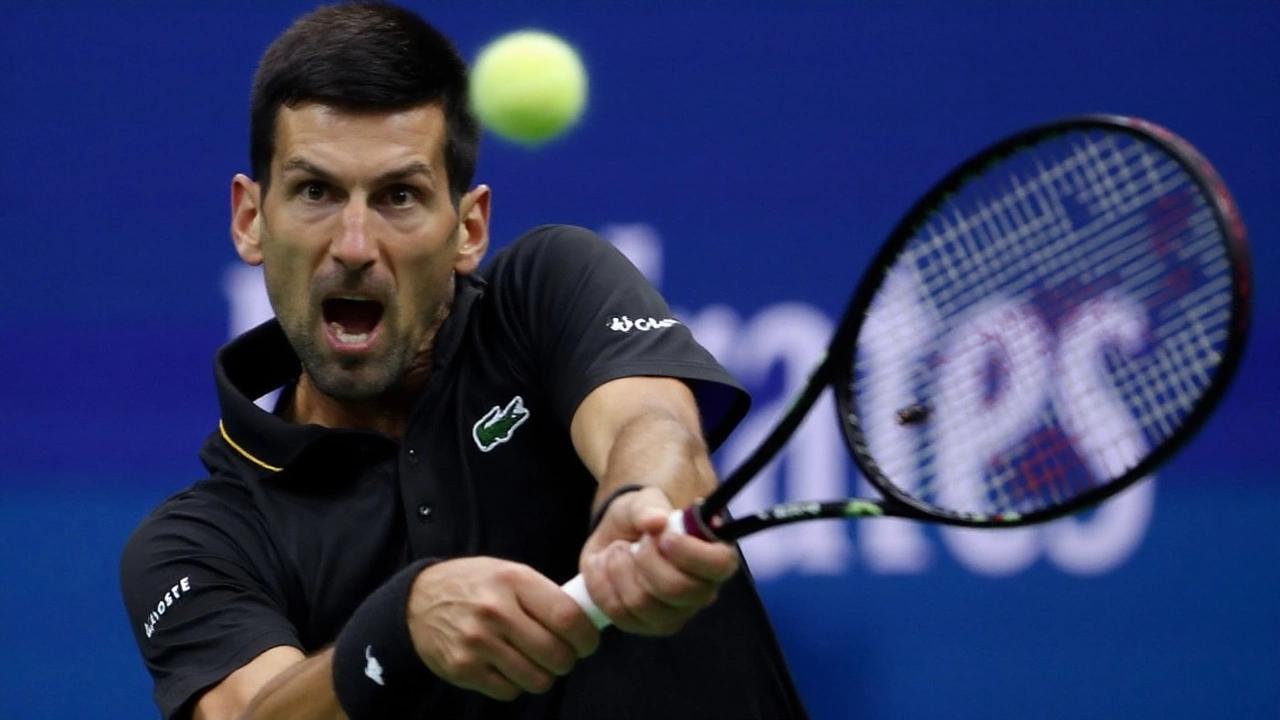Djokovic tames Fritz — and the New York noise — to book another US Open semifinal
The scoreboard said routine. The noise said otherwise. On a restless Tuesday night inside Arthur Ashe Stadium, Novak Djokovic outlasted Taylor Fritz 6-3, 7-5, 3-6, 6-4 to reach the US Open semifinals, a win that doubled as a running argument with a crowd that cheered his errors and rode every swell of the American’s momentum. The 38-year-old Serb improved to 11-0 against Fritz and pushed into his 53rd Grand Slam semifinal, extending a season in which he has made the final four at every major.
This was Djokovic’s sort of paradox: an efficient stat line wrapped in a messy, emotional night. He grabbed the first set with early control of baseline rallies, then stole the second 7-5 after digging out of pressure games. The temperature on court wasn’t the issue so much as the temperature in the stands. Past 10:30 p.m., as the match got tighter and the sound got harsher, Djokovic pressed chair umpire Damion Dumusois about spectators who were cheering his double faults and errors. “What are you going to do?” he asked between boos. When the umpire tried to calm the noise with polite reminders, Djokovic mimicked him—“Thank you. Please. Thank you. Please.”—in a pointed bit of theater that drew more jeers. The act didn’t rattle him for long.
Fritz swung the match back his way by taking the third set, feeding off the energy and finding more first serves. For patches of the second and much of the third, Djokovic acknowledged, “he was a better player.” It looked like the door had cracked open—until it didn’t. Djokovic steadied in the fourth, returned deep, and tightened the margins in rallies. The final image after match point was pure defiance: a few blown kisses to the crowd from Djokovic, who has never minded being the villain for the night if it helps him win the week.
Strip away the noise and the tennis was familiar: Djokovic’s big-point nerve against an opponent who couldn’t finish enough of the chances he earned. Fritz had 13 break points; he converted just two. Djokovic saved 11 of 13, often with bold first serves down the T or a jam to the body, followed by a clean first strike off the next ball. Those are the points that make or break a match at this level—micro-moments where a millimeter on a return or a breath of hesitation changes everything. Fritz’s regret will be living in that thin space and not making Djokovic pay.
Fritz did plenty right. He dug in after a flat start, found mid-court forehands he could lean on, and went for the lines when he sensed Djokovic easing off his depth. His third-set surge felt earned, not gifted. But against Djokovic, you rarely beat him once—you usually have to beat him two or three times in the same match. Each time Fritz moved ahead in a rally, Djokovic put one more ball in play, reshaped the court with a deep backhand, or reset with a hard-angled return to flip who was dictating. That’s the grind that has separated Djokovic for nearly two decades.
The loss stings more for what it means beyond the night. Fritz was the last American man standing, and with his exit, the drought continues: no American male has won a Grand Slam since Andy Roddick at the 2003 US Open. That’s 22 years of pressure, hopeful runs, and near-misses. Fritz has been part of a deeper American group that can reach second weeks—he’s not alone there—but closing the gap to beat the game’s best in these settings remains the leap still to be made.
Djokovic’s longevity keeps stretching the imagination. At 38 and seeded seventh, he remains the player who solves problems faster than anyone else under stress. Reaching the semifinals at all four majors this season—for the seventh time in his career—speaks to consistent preparation more than any one night of brilliance. He doesn’t have the most explosive gear left in him every match, but his baseline tolerance, return quality, and point construction still hold up better, longer. And when the moment calls for it, he can spike his level for five minutes and swing a set.
The other story is New York itself. Arthur Ashe is tennis’s loudest room, a place where energy can tip into interference. The rules are straightforward: play remains continuous, and the chair is supposed to keep noise down as players start points. But no one can mute 23,000 people who’ve turned a match into a scene. Dumusois tried courtesy—standard practice—but in a night like this, courtesy doesn’t cut it. Djokovic’s mimicry made his frustration obvious, and his post-point gestures told the rest. His relationship with stands around the world is complicated: adoration in many places, friction in others, and a kind of combustible respect in New York. It can sharpen him. It can also make a winnable match drift danger close.
All of it now funnels into a blockbuster semifinal against Carlos Alcaraz, the second seed. Djokovic leads their head-to-head 5-3 and has won their last two meetings, but they’ve never faced each other at Flushing Meadows. That matters. The court feels quicker under the lights, the ball flies differently at night, and the crowd’s mood can tilt the first 30 minutes. Alcaraz brings first-strike flair and elastic defense; Djokovic brings return pressure and surgical point-building. If Alcaraz lands early body blows with pace and short points, he can set the tone. If Djokovic drags rallies into his tempo, squeezes second serves, and forces backhand exchanges, he’s in command.
There’s also history on the line. Djokovic is chasing a record-extending 25th major and a fifth US Open. The number matters to him, but it doesn’t define his night-to-night habits. He has built this season on managing the checkpoints—hold, return, break at the right time, absorb the crowd, reset. Tuesday was another test like that: not flawless tennis, but winning tennis, and a stark reminder that he’s still the sport’s most reliable closer in a storm.

What the numbers say, and what comes next
The match stats tell the story of clutch play and missed chances more than anything tactical. Fritz’s ratio on break points—two of 13—compares with Djokovic’s iron wall when he needed it most. Djokovic’s service choices under pressure were simple and brave: hit the spot, set up a first forehand, or jam the returner and get a neutral ball. From there, he trusted the patterns he’s repeated for years: dig the backhand deep cross, step in on a shorter reply, finish into space. Fritz’s best pockets arrived when he took the ball early and pulled forehands inside-in, especially in the third set. But over four sets, the steady points stack up.
Context helps, too. Djokovic’s age is a headline, but his schedule is the real edge. He’s mastered the art of spending energy only where it pays returns. Between points, he slows the pulse. On break points, he accelerates. Over the course of a two-hour, three-hour, or four-hour match, that is its own form of athleticism. It’s also why he’s standing in another US Open semifinal.
For American men’s tennis, the conversation remains open. The talent pool is there—several players have reached top-20 and top-10 territory in recent seasons—but these late rounds against all-time greats are still the barrier. Fritz did enough to make this one interesting; he didn’t do enough to flip it. The difference is thin, but it is real.
- Score: Djokovic d. Fritz 6-3, 7-5, 3-6, 6-4
- Break points: Djokovic saved 11 of 13; Fritz converted 2 of 13
- Head-to-head: Djokovic leads Fritz 11-0
- Grand Slam semifinals: Djokovic reaches a record 53rd
- 2025 majors: Djokovic into the semifinals at all four
- Next opponent: Carlos Alcaraz (Djokovic leads 5-3; first meeting at the US Open)
- American men’s Slam drought: Since Andy Roddick, US Open 2003
Djokovic didn’t play his cleanest match of the tournament. He didn’t need to. He played the points that mattered better, accepted the noise, and made peace with being the foil for a few hours. That’s usually enough in New York—especially when the player on the other side is still learning how to win these nights, not just compete in them. The semifinal now sets the stage for something bigger: a generational fight with Alcaraz and a chase for a 25th major that refuses to slow down.
